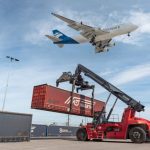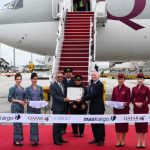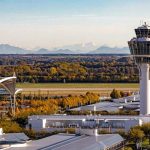Ostend-Bruges Airport emphasizes its key role as a logistics player in Flanders during the World Cargo Summit in Ostend
Ostend, Belgium—Ostend became the epicenter of the air cargo sector for three days— 27-29 January 2025—with more than 300 leaders and experts gathered at the Kursaal for a leading international cargo conference, the World Cargo Summit 2025.
Ostend-Bruges Airport was the host partner of the event, highlighting its important role as a logistics player in Flanders and reaffirming its vision for growth, strategic expansion, and innovative solutions for the future of air cargo.
The presence of prominent players from the air cargo industry offers a unique opportunity to promote both the airport and the region as a dynamic logistics hub. Ostend-Bruges Airport emphasizes its strategic location near seaports with direct access to an efficient network towards Flanders, Northern France, Southern Netherlands, and the United Kingdom.
“With the new environmental permit, Ostend-Bruges Airport has been given the space to further expand its cargo activities,” said CEO Eric Dumas. “Our airport already plays a significant logistical role today, and this role will only grow in the coming years. Major airports are increasingly facing oversaturation, making regional cargo airports like Ostend-Bruges Airport ideally positioned and equipped to accommodate a larger share of cargo volumes. With 24/7 operations, we offer fast, efficient, and highly flexible cargo handling.”
One of Ostend-Bruges Airport’s key projects is the development of a new cargo village, a logistics zone with over 48,000 m² of warehouses, built in collaboration with Versluys Logistics. These facilities are designed to meet the growing demand for efficient solutions for perishable goods, pharmaceuticals, e-commerce, and general cargo. The first warehouse was recently completed.
Ostend-Bruges Airport is committed to sustainable growth. Investments are being made in the electrification of the vehicle fleet and handling equipment, the construction of the second-largest solar park in the country, and exploring opportunities with into-plane supplier UPLIFT to offer Sustainable Aviation Fuel (SAF) in the short term. Additionally, digitalization through the OST Cloud platform enhances operational efficiency by optimizing cargo flows and supporting customers in improving their logistical needs.
With the new environmental permit and the introduction of the Quota Count system, the airport can optimize night operations while minimizing the impact on the surrounding community by allowing quieter and modern aircraft during nighttime hours.

















